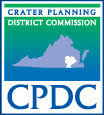
The questions following are ones we receive the most and provide the most information on when a permit is required and dealing with contractors.
-
When is a permit required?
-
A permit is required before beginning any of the following work:
- Constructing, enlarging, altering, repairing, or demolishing a building or structure.
- Changing the use of a building when the new use a greater degree of structural strength, fire protection, exit facilities, ventilation or sanitary procedures.
- Installing or altering any equipment which is regulated by the building code.
- Removing or disturbing any asbestos containing materials during demolition, alteration, renovation of or additions to building or structures.
Examples:
- Finish an unfinished attic or basement
- Adding or replacement of a deck
- Replacement of water or sewer lines
- Installation of a swimming pool either above or in-ground when more than 24 inches deep
- Installation of new electrical equipment or wiring
- Installation of gas fired appliances such as heaters or fireplace log sets
- Building a detached garage or storage building when the area exceeds 200 square feet
- Replacement of roofing materials when the area exceeds 100 square feet
-
When is a permit not required?
-
Generally a permit is not required when the work is of a minor nature or constitutes general repairs such as:
- Replacing plumbing fixtures when the alterations are not necessary to the supply or drainage piping
- Replacement of electrical fixtures when no new wiring or circuits are necessary
- Replace decking or porch flooring
- Painting
- Replacement of cabinets and counter tops
- Pouring concrete patios or driveways at grade level
-
What are the permit fees?
-
All residential building, electrical, plumbing, mechanical, and fuel gas permit fees are based on the square footage of the bulding or structure for new construction and altertions to existing buildings or structures.
-
Who may apply for a permit?
-
The building or property owner, lessee or agent of either of these may apply for a permit. Additionally, a Virginia registered architect or engineer, a licensed contractor or subcontractor or their designated employee or agent employed in connection with the project may obtain the permits. Engineers, architects, contractors, or subcontractors are required to provide evidence they are properly licensed or registered by the commonwealth prior to obtaining permits.
-
May I obtain permits over the phone or by mail?
-
Generally, permits can be issued by mail and in person. You may call the Department of Inspections and request a permit application or they can be downloaded from our website. Once the application is completed, just return it with a check by mail and the permit wil be mailed back once it has been completed. The work may proceed once you have submitted and confirmed the receipt of the transaction.
-
May someone else obtain a permit for me?
-
Yes, as stated above, certain professionals employed in connection with the project may obtain permits. Additionally, the owner may have a designated agent obtain permits for them. An agent is anyone the owner has given authority to act on his or her behalf. An agent must submit a written notarized document from the owner designating them as agent prior to obtaining permits.
-
Should I purchase the permit or require the contractor to purchase it?
-
In all instances the contractor should be required to obtain the permit as part of the contract. The permit holder is responsible for ensuring the work meets the requirements of the building code. If the owner obtains the permit for the contractor the contractor cannot be held responsible for complying with the code. If you are dealing with a reputable contractor they should not have a problem obtaining the permit. It is usually the unlicensed contractor who requests the owner obtain the permit. This is a sure sign for you to consider another contractor.
-
How would I know if a contractor is licensed?
-
Virginia law requires all contractors to include their license number on all documents to include contracts, proposals, bid forms and advertising. It would always be prudent to ask to see a copy of the license before signing any contract. Once you have the number you can confirm the license by calling the Stae Board for Contractors in Richmond (804) 367-8511. Additonally, you can check their information at the Department of Professional and Occupational Registration website at www.dpor.state.va.us.
-
How long is the permit valid?
-
A permit remains valid for three years. If work is halted or abandoned for a period longer than six (6) months the permit may be suspended. The Building Official may extend permits upon request if the applicant can justify the extension. If a permit lays dormant for a period longer than six months the applicant is notified and requested to have the work inspected to confirm the work is ongoing and has not been abandoned. If there has been no progress, the permit is suspended and the applicant will have to reapply for the permit and pay any association fees for renewal of the permit.
-
May a permit be voided?
-
The Building Official may void permits when false or fraudulent information has been provided to obtain the permit. Otherwise, the permit may be suspended as discussed above or cancelled by the permit holder.
-
Can I get a refund on the permit if I decide not to do the project?
-
The permit holder can cancel at a permit anytime prior to completion of the project. Upon cancellation a refund for the portion of the work not completed can be requested. Generally, refunds will be issued minus the amount of work completed and an administrative fee to cover the cost of processing the refund.
Physical Address:
20135 Princeton Road
Sussex, Virginia 23884
Mailing Address:
Post Office Box 1397
Sussex, Virginia 23884
Office Hours:
8:00 a.m. to 4:30 p.m. M-F
Phone:
(434) 246-4390
Fax:
(434) 246-8259









 Made in the U.S.A.
Made in the U.S.A.